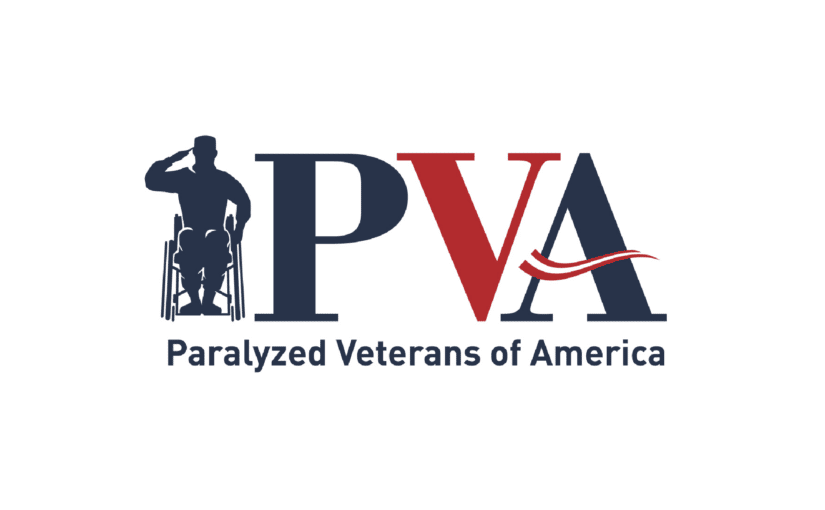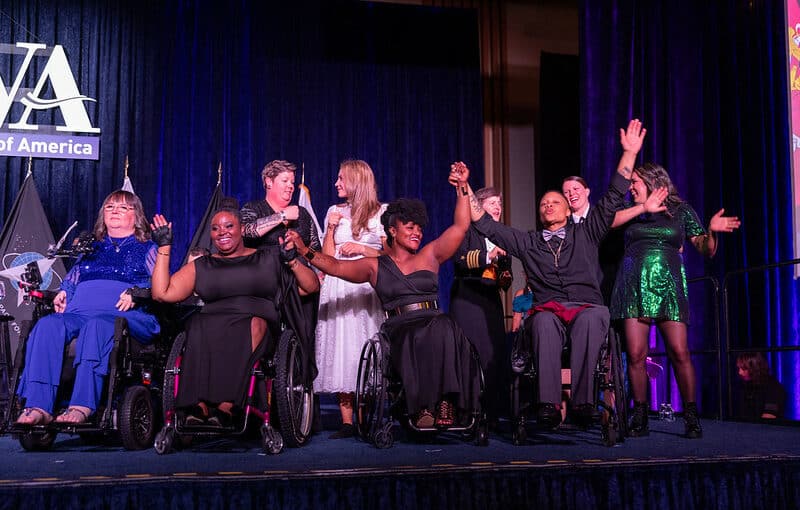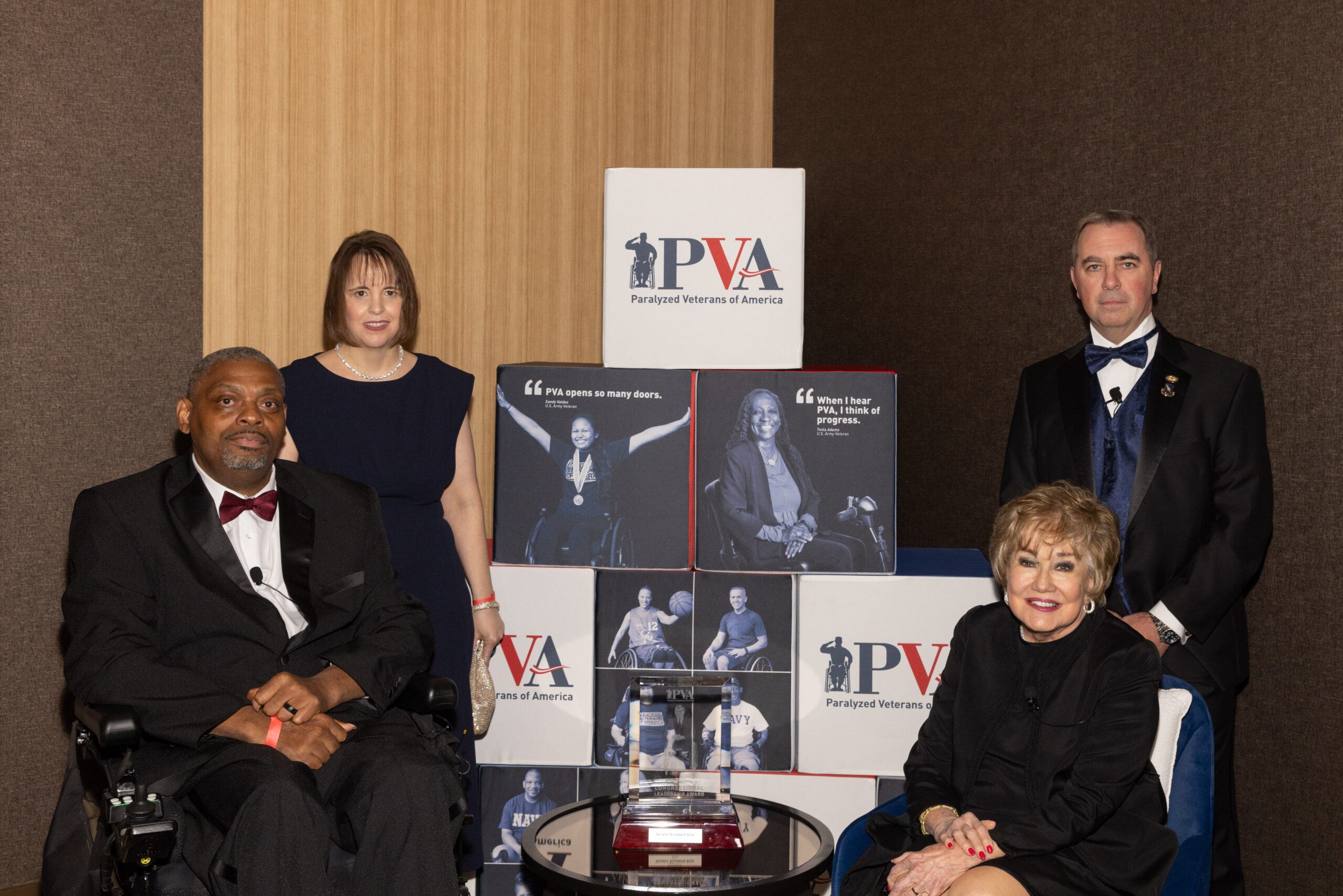Paralyzed Veterans of America Joins Forces with Disability Rights Partners to Urge Support of Air Carrier Access Amendments Act
WASHINGTON, DC 6/23/17 — Paralyzed Veterans of America (Paralyzed Veterans) today banded with like-minded advocacy organizations in support of the newly introduced Air Carrier Access Amendments Act of 2017 that will strengthen the rights of airline passengers with disabilities and close service gaps frequently encountered in air travel.
Signed into law by President Ronald Reagan in 1986, the landmark Air Carrier Access Act (ACAA) prohibited discrimination based on disability in air travel. Although the ACAA led to improved access for passengers with disabilities, significant disability-related problems persist in air travel. Introduced today by Senator Tammy Baldwin (D-WI), and co-sponsored by Senators Duckworth (D-IL), Markey (D-MA), Hassan (D-NH), and Blumenthal (D-CT), the Air Carrier Access Amendments Act would strengthen the original law’s protections to ensure that airplanes are accessible, and that individuals have increased opportunities for their rights to be enforced and protected.
“Last year more than 30,000 passengers, including many Paralyzed Veterans of America members, filed disability related complaints with airlines,” said National President-elect David Zurfluh. “The historic passage of the Air Carrier Access Act (ACAA) more than thirty years ago prohibited discrimination against disabled passengers in air travel. Yet, despite this progress, many travelers with disabilities still encounter damaged equipment, delayed assistance, lack of seating accommodations, and other challenges when traveling by air. We urge Congress to expediently act on updating this important civil rights law.”
Specifically, the Air Carrier Access Amendments Act will:
* Strengthen ACAA enforcement to include specific protections of the rights of
passengers with disabilities and a private right of action.
* Ensure airplanes are designed to accommodate people with disabilities and airlines meet accessibility standards, including safe and effective boarding and deplaning, visually accessible announcements and better stowage options for assistive devices.
* Improve access to seating accommodations.
* Close service gaps in air travel for passengers with disabilities.
“In order to keep America’s promise of full equality for all, we must work to break down the barriers that individuals with disabilities and our veterans face when they travel,” said Senator Baldwin in an official statement released earlier today. “Equal access to air travel ensures individuals with disabilities are able to participate in today’s economy and enjoy their travel opportunities.”
Disability Advocacy partners today joined Paralyzed Veterans in the support of the new legislation:
“The Air Carrier Access Act (ACAA) was signed into law over 30 years ago, yet travelers with disabilities are still experiencing barriers to air travel every day,” said Helena Berger, President & CEO of the American Association of People with Disabilities (AAPD). “The Air Carrier Access Amendments Act (ACAAA) will strengthen the provisions and enforcement of the ACAA so that people with disabilities can benefit from the same travel opportunities that other Americans experience. We are grateful to Senator Baldwin for introducing this legislation and hope to see it achieve strong bipartisan support.”
“United Spinal Association’s members are pleased to support the Air Carrier Access (ACAA) Amendments Act. Thirty years after Congress blazed a bold trail of rights for people with disabilities to have equal access to air travel, it is time to take stock of where the law works and where it does not. Senator Baldwin’s ACA Amendments Act strikes a fine balance in addressing demonstrated inadequate accessibility, damaged wheelchairs and discriminatory actions with a call for reasonable standards, regulations and an airline passengers with disabilities bill of rights,” said James Weisman, President & CEO.
The Air Carrier Access Amendments Act is also supported by Disability Rights Education and Defense Fund, National Association of the Deaf, American Council of the Blind, Easterseals, The Arc of the United States, Bazelon Center for Mental Health Law, National Multiple Sclerosis Society, National Disability Rights Network, Muscular Dystrophy Association, and National Council on Independent Living.
A section-by-section summary of the Air Carrier Access Amendments Act is available here.
Disabled traveler stories can be found on airaccess30.org.



